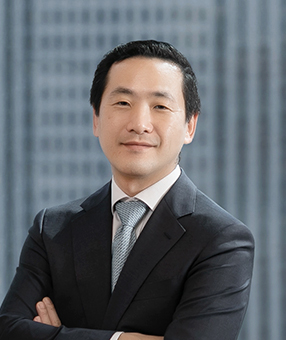1. Overview of the Furniture Bid-Rigging Case
On April 20, 2023, the Fair Trade Investigation Division of the Seoul Central District Public Prosecutors’ Office (the “PO”) announced a series of indictments related to bid-rigging in built-in furniture manufacturing projects in Korea. According to the PO, the scheme lasted from January 2014 to December 2022 and affected approximately KRW 2.3 trillion of commerce involving around 780 apartment construction projects ordered by 24 construction companies. The PO indicted eight major furniture companies and 12 individuals, including top decision makers who ordered or approved the bid-rigging, for violations of the Monopoly Regulation and Fair Trade Act and the Framework Act on the Construction Industry, and also indicted two employees who destroyed evidence during dawn raids for destruction of evidence.
This case marks the first time ever in which the PO launched a criminal antitrust investigation through its use of the criminal leniency program without an initial criminal referral by the Korea Fair Trade Commission (the “KFTC”).1 In the lead-up to the indictments, the PO and the KFTC reportedly held a series of meetings to share information, discuss the scope of the PO’s request for criminal referrals, and ensure consistency between the KFTC’s leniency program and the criminal leniency program. This case represents a potentially meaningful milestone that signals earlier involvement by the PO in antitrust cases and closer cooperation between the two agencies in criminal antitrust matters.
2. Background: PO’s Criminal Leniency Program
The PO has long made efforts to identify and prosecute collusion as a serious crime. But it faced practical and procedural limits in moving swiftly to investigate potential antitrust crimes, as it needed to receive leniency information from the KFTC. To remedy this, in December 2020, the PO established a cartel reduction/exemption system (hereinafter referred to as “criminal leniency program”) in the form of Supreme Prosecutors’ Office (the “SPO”) guidelines. The criminal leniency program allows the PO to grant penalty exemption or reduction to a person or entity who self-reports cartel activity and cooperates with the PO’s investigation.
While the criminal leniency program shares similarities with the KFTC’s leniency program in terms of the requirements and criteria for recognition, it has the following differences: (i) the ranking of leniency is based on the order of the SPO’s receipt of leniency applications, separate from the KFTC’s leniency ranking; (ii) the criminal leniency program covers only hardcore cartels (the KFTC leniency program covers softcore cartels as well); (iii) individuals as well as businesses are eligible to apply for leniency (only businesses are eligible to apply for the KFTC leniency program); and (iv) only the first-in-line leniency applicant is exempt from prosecution (the first- and second-in-line applicants are exempt from criminal referral under the KFTC leniency program).
[Comparison of the KFTC Leniency Program and the Criminal Leniency Program]
|
|
KFTC Leniency Program |
Criminal Leniency Program |
|
Applicable Law |
|
|
|
Act Subject to Leniency |
|
|
|
Qualifications for Application |
|
|
|
Application Procedure |
|
|
|
Criteria for Judgment |
|
|
|
Effect of Reduction/Exemption |
|
|
|
Confidentiality |
|
|
Once a criminal leniency application is received, the SPO decides whether to transfer the application materials to the KFTC or to the PO. It is understood that there have been multiple applications that have been filed across several matters since the inception of the criminal leniency program. Before the furniture bid-rigging case, the SPO transferred all such applications to the KFTC to conduct investigation first.
This case represents the first one in which the SPO transferred the criminal leniency application materials to the PO instead of the KFTC. Despite the fact that the KFTC had an ongoing investigation into the same issue, the PO swiftly launched its own investigation and conducted extensive search and seizure of the relevant furniture makers and related persons. The PO also identified top decision makers within each entity that participated in the collusion, requested the KFTC to make criminal referrals for those individuals, and subsequently indicted them upon the KFTC’s criminal referral.
3. Implications
|
(1) |
Need for an Accurate Understanding of the Criminal Leniency Program |
|
(2) |
Closer Cooperation between the PO and the KFTC |
1 The KFTC issued criminal referrals later, after the PO’s investigation was already in process.
Related Topics
#Prosecutors’ Office #Bid-Rigging #Criminal Leniency Program #Legal Update













